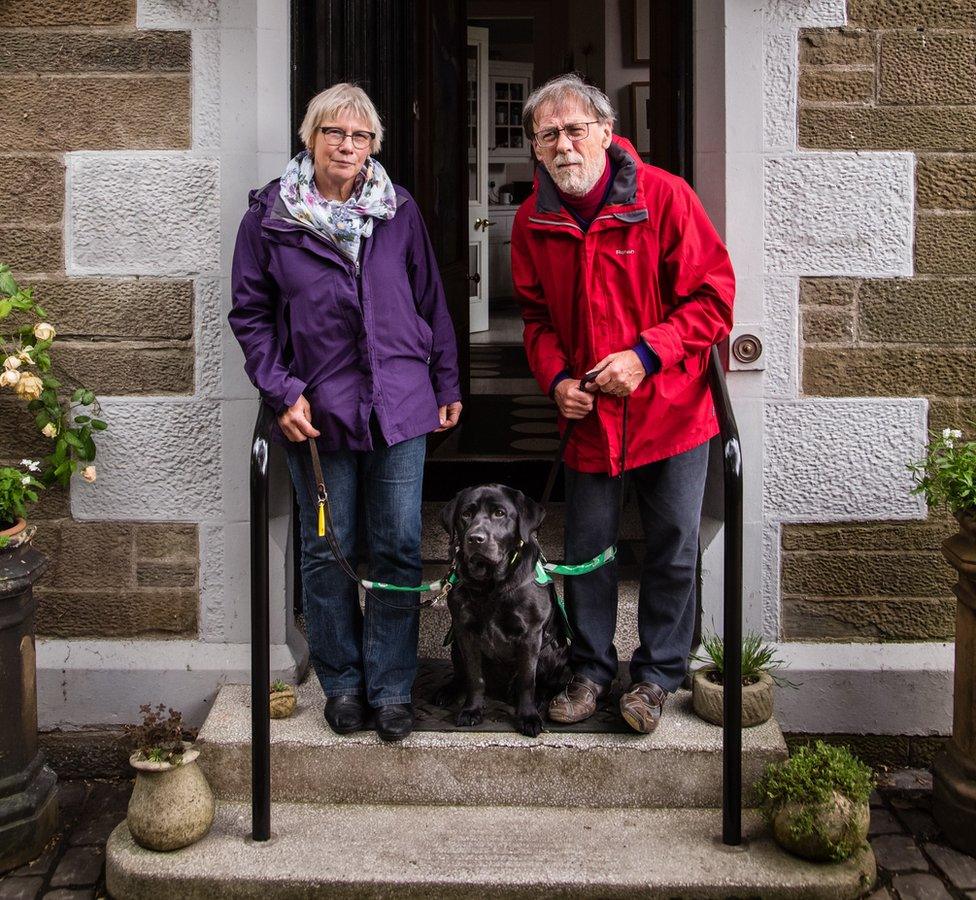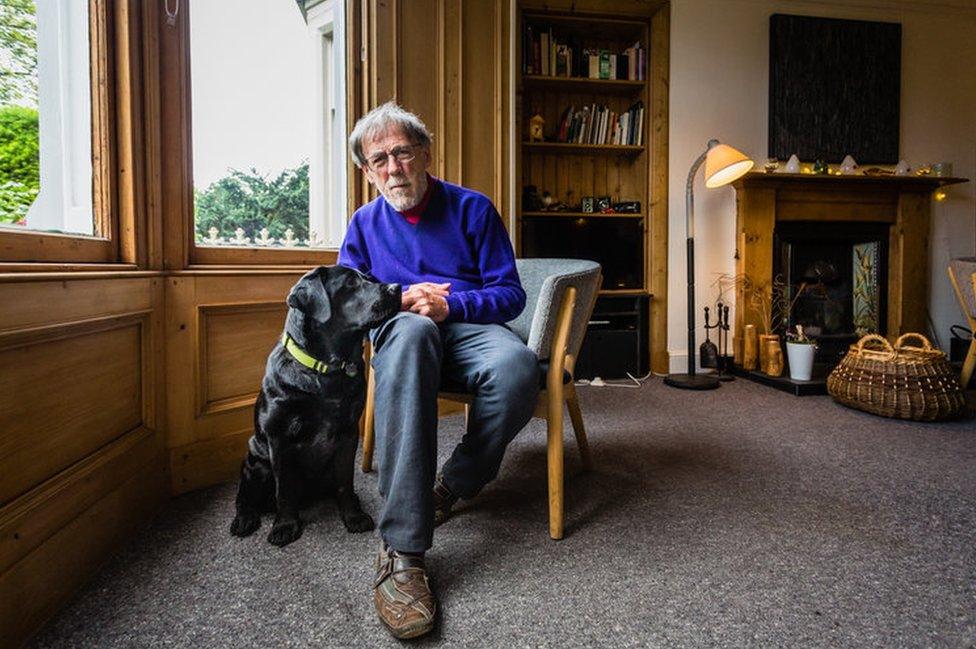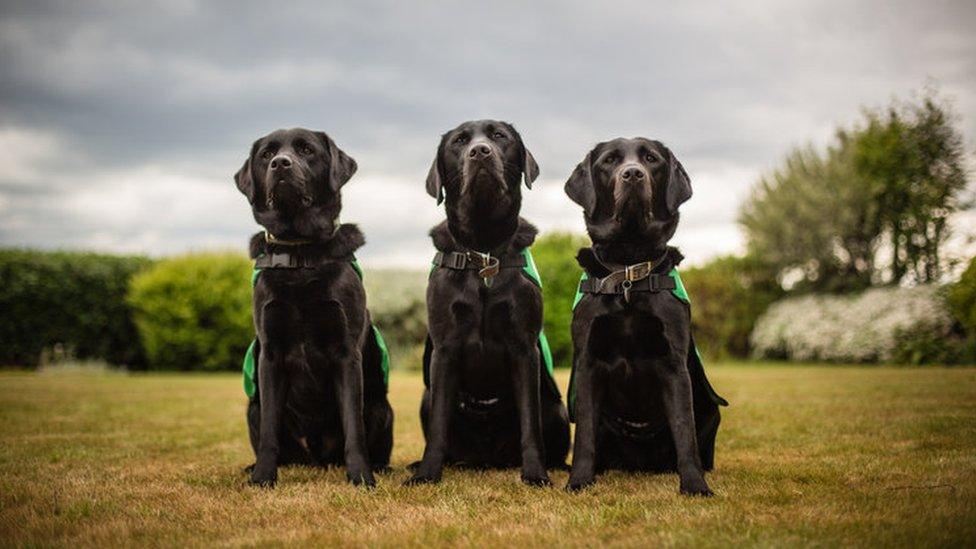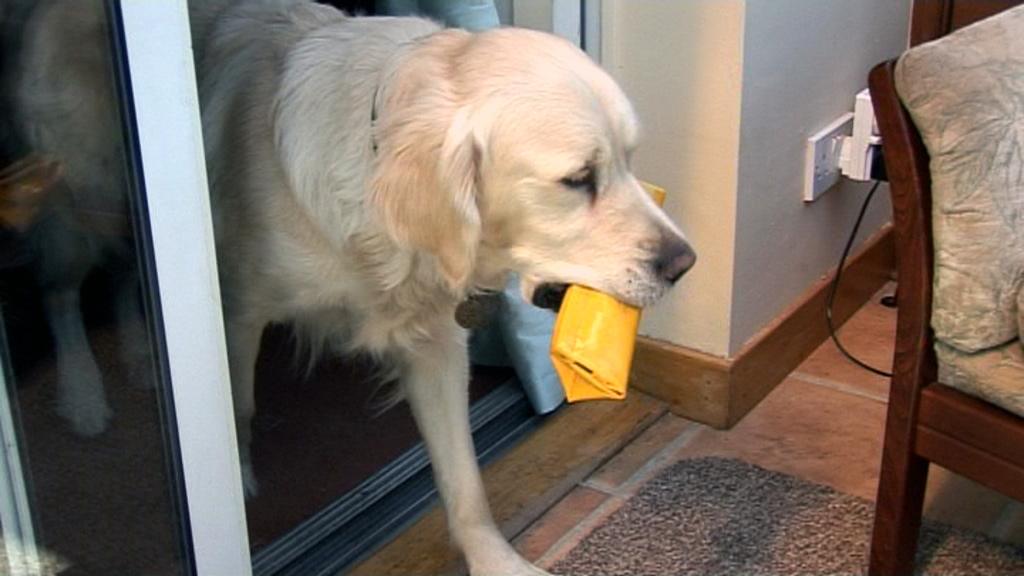Dementia Dogs project under threat as funding runs out
- Published
Meet Webb: The canine carer
A project that provides specially-trained dogs to help dementia patients is under threat unless it can secure new funding.
The Dementia Dog Project's canine carers help patients remember to take medication and assist with daily living.
Originally the brainchild of students from Glasgow School of Art, the project now provides 12 dogs across Scotland.
It could close in weeks unless it secures new funding.
The idea was developed in 2012 by four product design graduates and their tutor who wanted to find out if dogs could assist people with dementia in the same way that guide dogs can help people who are blind.
Now run by Alzheimer Scotland and the charity Dogs for Good, it takes two years to train the dogs to provide practical help such as opening doors and fetching medication pouches.

'He enjoys fetching medication'

An alarm sounds when it's time for Malcolm Thomson to take his medication - and a black Labrador called Webb springs into action.
"One of the things he enjoys doing is fetching the medication," explains Malcolm's wife Imke.
"It doesn't matter where in the house he is - he will go and fetch the purse with the medication and he will actually wait till you've taken the medication as well.
"Malcolm sometimes gets confused which is the way out of a room so he just has to say to Webb 'open the door' and he will lead him.
"He also unfolds an exercise mat so that Malcolm can do his exercises.
"In theory I could do that but in practice if I did do, it I would probably get a 'grumph' and a 'can't be bothered' but if a black Labrador dog does it and is looking at you as if to say 'I've done that for you, come on', then that makes for a better atmosphere and helps make it a much happier house."

The dogs also provide companionship and help people with dementia maintain social connections.
Instructor Kerry Gough told BBC Scotland's The Nine: "The dogs give the couples the motivation to get out and keep up that physical activity which can sometimes be challenging.
"When they're out and about it can also help them connect with their local community so people will stop them, ask about their dog, what the dog does and the dog acts as an ice breaker.
"But I think also the other area is the companionship and emotional support."

The dogs provide companionship as well as practical help
After initial funding from the Design Council of London, the project secured a further three years of support from the Life Changes Trust, part of the National Lottery.
The trust cannot, however, provide long-term funding and the current allocation expires on 31 August.
If no new financial support is forthcoming, couples who have been paired with dogs will be able to keep them, but there will be no new pairings.
Dementia Dogs is currently based at HMP Castle Huntly where inmates learn about dog training as part of their rehabilitation.

- Published15 July 2013
